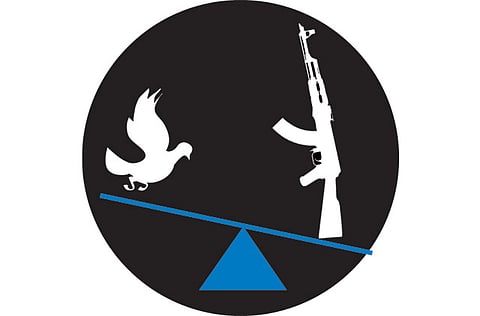How US aims to end war with Taliban
Ahmed Rashid writes: There is a determination finally in Washington to have a political strategy rather than depend on a military outcome

After more than two years of internal disputes and rivalries, the Obama administration is for the first time united on stepping up its secret talks with the Taliban. It also wants to start wider talks with regional countries such as Pakistan, which hold the key to a peaceful settlement as the US and Nato prepare to pull out their troops by 2014.
As the situation in Afghanistan worsens with a ferocious Taliban summer offensive having just started with a spate of suicide bombings, the White House, the State Department and the Pentagon are preparing for extensive diplomatic initiatives in the next few months to take the fledgling peace process forward and push to broker an end to the war.
US officials increasingly are feeling the heat of domestic pressure. According to an ABC poll two-thirds of the American public believe the war is no longer worth fighting. At $2 billion (Dh7.34 billion) a week, the war is exacting a high cost from American and European taxpayers. Since last autumn US officials have held a couple of rounds of talks with Taliban representatives, but the logistics, in particular the checking of Taliban bona fides, have been difficult. So the US now accepts — and is working on — a Taliban request to open a Taliban political office, most probably in the Middle East. With such an office there could be direct, unimpeded talks between the Taliban and the Afghan government and outsiders such as the Americans.
If current talks progress well, such a Taliban office could be moved to Afghanistan. Hamid Karzai's government in Kabul has been speaking to the Taliban off and on for nearly three years but without US support the talks have not moved forward. The Taliban had specifically asked to talk to the Americans.
Vision for peace
On another front, despite months of acrimony between the intelligence agencies of the US and Pakistan, US officials say they are keen to engage with the Pakistan military to use it to help end the war and bring under control the safe havens that the Taliban have enjoyed in Pakistan. US frustration with Pakistan is only matched by the knowledge that there can be no peace in Afghanistan without it. The Pakistani leadership is in turn deeply frustrated with the Americans for refusing to share their vision of a peace process, but US officials say there has been no united US vision to share until recently. Recently, in a clear snub to the US, military and civilian Pakistani leaders visited Kabul and pledged to promote Karzai's talks with the Taliban. One expected US initiative, which Barack Obama had promised to do in 2008 and then stalled on, is a behind-the-scenes push to persuade India and Pakistan to hold talks on reducing their mutual mistrust on Afghanistan. Such talks may eventually be joined by the Afghan and US governments. Simultaneously the US wants to pursue a major diplomatic push with Afghanistan's five other neighbours including Iran, even though Washington has no diplomatic relations with Tehran.
The first target date is a presidential speech in July to mark the first withdrawal of US troops from Afghanistan. Obama may then sketch out the new strategy including a first public admission that the US is talking to the Taliban. The next date is December when a conference in Germany marks the Bonn meeting 10 years ago that created the post-Taliban government in Kabul. The new conference will try and make sure Taliban are present as full partners, although no peace agreement is expected at such an early stage. Many of the top generals, including General David Petraeus, who commands all US-Nato forces in Afghanistan, will be replaced over the next nine months - giving Obama the opportunity to bring in officers who will concur with his strategy.
One hiccup ahead is Karzai's request for a ‘strategic partnership agreement' with the US after 2014. The Pentagon is keen on this so it can maintain between two and six bases in Afghanistan to keep the pressure on Al Qaida. Most countries in the region — such as Pakistan, China and Russia — will object to an indefinite US military presence, while Iran will see it as a permanent threat.
For the US to want to maintain bases after 2014 directly contradicts with the US desire to win the cooperation of Afghanistan's neighbours. The end game has begun in Afghanistan. How the US and Nato play their cards will be vital. A rush for the exit by some Nato countries could prove catastrophic. As negotiating partners the Taliban are at best an unknown quantity. But there is at last a determination in Washington to have a political strategy rather than depend on a military outcome.
— Financial Times
Ahmed Rashid's latest book is Descent into Chaos. A revised edition of his Taliban was published last summer.



